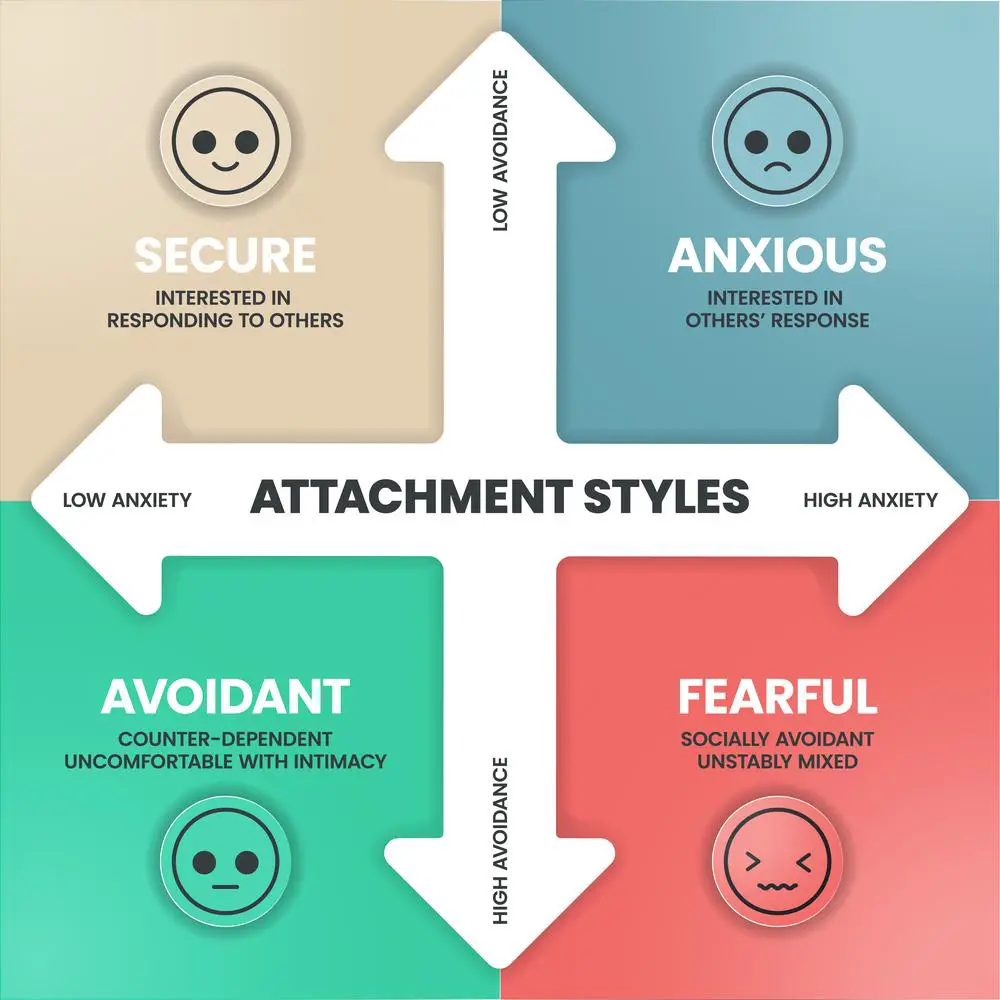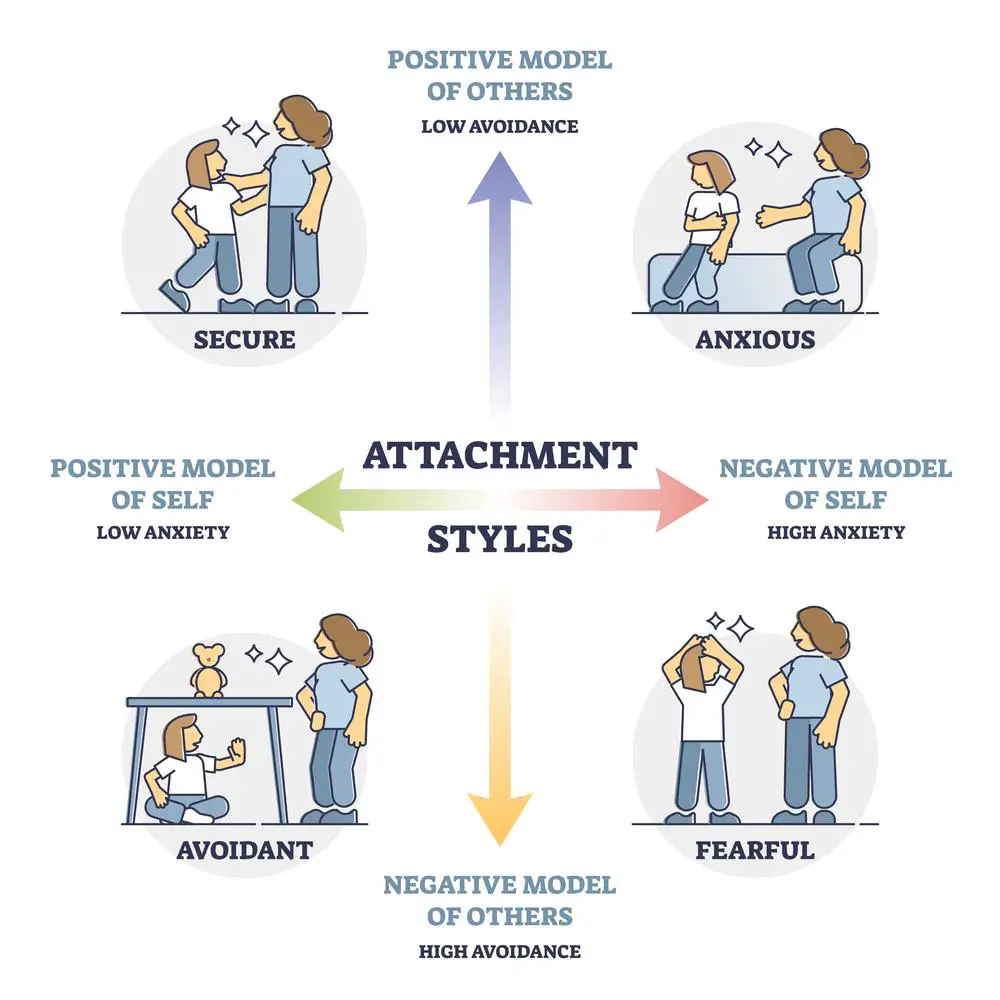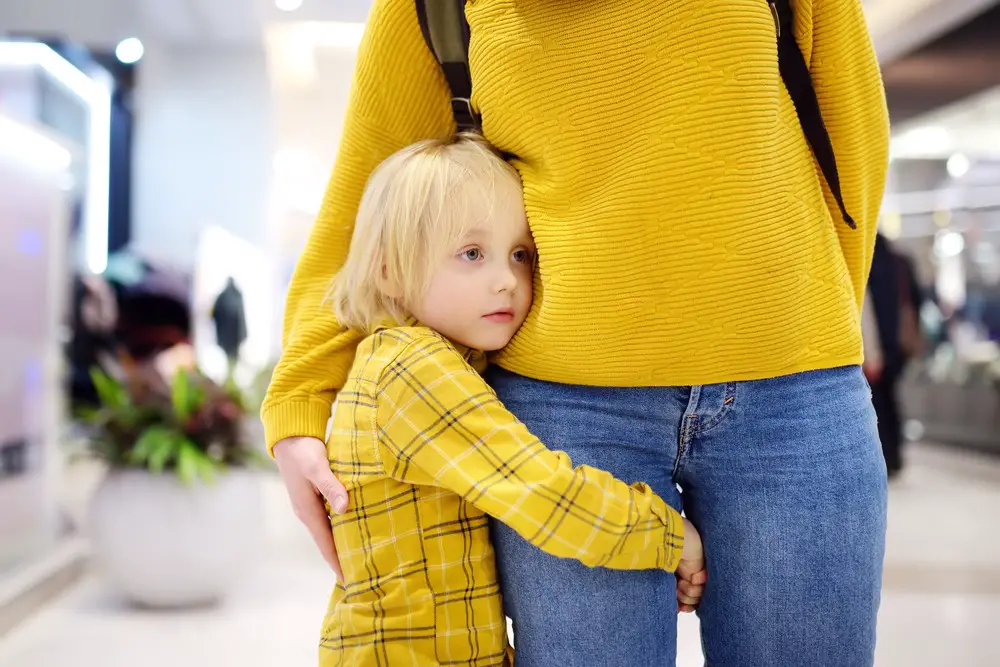Have you ever wondered why a simple argument about who left the cap off the toothpaste can feel like a scene from an epic drama? Well, the answer might lie buried in your childhood sandbox. Welcome to a deep dive into how our childhood experiences, particularly those involving childhood trauma, silently choreograph our adult relationships.
It’s like discovering that your childhood imaginary friend has secretly directed your love life. We’ll explore how traumatic events from the past can lead to post-traumatic stress disorder, silently pulling the strings in your current romantic escapades.
This journey might not be as fun as your childhood games, but it’s crucial for understanding the complex dance of adult love. So, grab your metaphorical flashlight as we illuminate the shadowy corners of our past that shape our present connections. Who knows, you might find that misplaced cap along the way!
Unraveling the Influence of Early Childhood on Adult Love Lives
As we embark on the journey of unraveling the influence of early childhood on our adult love lives, it’s crucial to acknowledge the profound impact of childhood trauma. It’s like unearthing hidden treasures, except instead of gold, we often find memories and patterns shaping our quest for healthy relationships.
Think back to your younger self, the interactions with family members, and the environment you grew up in. All these elements contribute to the tapestry of your current love life. For many of us, these early experiences, especially if we experienced childhood trauma, set the stage for how we connect, trust, and love in adulthood.
It’s not about pointing fingers or laying blame. Instead, it’s about understanding these deep-seated influences to create a roadmap for healthier, more fulfilling relationships. Recognizing these patterns is the first step toward transformation, turning past challenges into stepping stones for future relationship success.
Identifying Symptoms of Unresolved Childhood Issues
Specific patterns often whisper tales of unresolved childhood issues in the intricate dance of our interpersonal relationships. These are the subtle yet persistent signs of childhood trauma, shaping how we interact with those closest to us.
One notable symptom among individuals who experienced trauma in their formative years is a distinct challenge in emotional self-awareness ability. This might manifest as difficulty in recognizing and managing emotions, leading to repeated cycles of miscommunication or conflict with partners.
Identifying these symptoms isn’t always straightforward, particularly in how they present differently based on gender and personal history. For instance, men might exhibit specific behaviors hinting at unresolved childhood issues.
These behaviors, often referred to as ‘momma boy symptoms,’ can range from an unhealthy dependency on maternal figures to struggles in establishing balanced relationships. To better understand these symptoms and how they might influence your current relationships, it’s helpful to look for these momma-boy symptoms. Acknowledging and addressing these signs is essential to healing and building healthier, more fulfilling relationships.
Decoding How Childhood Shapes Attachment Styles in Adult Relationships
 In the complex tapestry of adult relationships, our attachment styles act like a secret language, deeply embedded in our childhood experiences. These styles, shaped significantly by childhood trauma, dictate how we connect, trust, and, ultimately, how we love. For many, the journey begins in the early years, where interactions and experiences lay the groundwork for future relationships. Instances of complex trauma in childhood, for example, can lead to attachment styles that are fraught with mental health issues, influencing how one perceives and interacts with others in adulthood.
In the complex tapestry of adult relationships, our attachment styles act like a secret language, deeply embedded in our childhood experiences. These styles, shaped significantly by childhood trauma, dictate how we connect, trust, and, ultimately, how we love. For many, the journey begins in the early years, where interactions and experiences lay the groundwork for future relationships. Instances of complex trauma in childhood, for example, can lead to attachment styles that are fraught with mental health issues, influencing how one perceives and interacts with others in adulthood.
This can manifest in various forms, from anxiety in relationships to difficulties with emotional regulation. Understanding the genesis of these attachment styles is not just an exercise in introspection; it’s a crucial step in addressing underlying mental health concerns and fostering healthier ways of relating to others. As we peel back the layers of our early experiences, we begin to understand how the echoes of our childhood shape the contours of our emotional world in adulthood.
The Struggle with Anxious Attachment
Anxious attachment, a style often born from the seeds of childhood trauma, can be a challenging yet common experience in adult relationships. This attachment style typically takes root when a child faces inconsistent or unpredictable emotional support, a form of complex trauma.
It sets a pattern where emotional regulation becomes an arduous task, with individuals often swinging between intense closeness and overwhelming fear of abandonment in their relationships. This constant emotional turmoil is not just draining; it can be a barrier to forming stable, fulfilling connections.
The key to moving beyond the constraints of an anxious attachment style lies in understanding its origins and consciously working towards healing. Taking proactive steps can lead to significant improvements for those grappling with this style. If you want to break free from the anxious spiral and foster healthier relationships, try these 5 Steps to recover from Anxious Attachment. These steps offer practical guidance to regain emotional balance and build the secure, loving relationships everyone deserves
Understanding and Addressing Dismissive Avoidant Attachment

Delving into the dismissive-avoidant attachment style, it’s clear how deeply childhood trauma and unresolved trauma can shape our adult relationships. This attachment style often emerges from a childhood where emotional needs were consistently overlooked or neglected, in some cases due to severe experiences like sexual abuse.
Individuals with this style tend to develop a shield of emotional self-sufficiency, often struggling with emotional regulation and maintaining a safe emotional distance in relationships. This leads to a pattern where deep emotional connections become challenging, causing relationships to feel distant. Understanding this behavior is the first step in addressing it.
Acknowledging these patterns is crucial for those who find echoes of the dismissive-avoidant attachment style in their own lives. Seeking ways to foster emotional openness and overcome fears of vulnerability can be transformative. For a deeper understanding of this attachment style and practical advice on shifting away from a dismissive approach in relationships, exploring resources specifically addressing how not to be dismissive can be incredibly beneficial.
Transforming Childhood Patterns for Healthier Relationships
 The journey of transforming childhood patterns, especially those marred by childhood trauma, into positive relationship skills in our adult lives is both challenging and rewarding. It’s a path that takes us from recognizing the deep-seated impacts of childhood trauma to actively engaging in the healing process.
The journey of transforming childhood patterns, especially those marred by childhood trauma, into positive relationship skills in our adult lives is both challenging and rewarding. It’s a path that takes us from recognizing the deep-seated impacts of childhood trauma to actively engaging in the healing process.
This transformation is not just about moving past pain; it’s about reshaping our understanding of relationships and our role within them. For many, childhood trauma can cast a long shadow, influencing behaviors and choices in ways that might mimic mental illness or emotional instability. Yet, the beauty of this journey lies in the realization that these patterns are not set in stone.
With awareness, support, and dedicated effort, the scars of childhood trauma can become the seeds of resilience and emotional intelligence. Engaging in the healing process is a decisive step toward recovering from past hurts and building healthier, more fulfilling relationships. It’s about relearning how to connect, trust, and love in ways that enrich our lives and the lives of those around us.
Building Emotional Intelligence and Communication Skills
Developing emotional intelligence and honing communication skills are essential in building stronger, healthier relationships. These skills are especially vital for those who have navigated adverse childhood trauma, including physical abuse or childhood abuse. Such experiences can leave lasting marks, making it challenging to form relationships based on trust, understanding, and mutual respect.
Emotional intelligence involves being able to understand and manage your own emotions, as well as recognize and respond to the feelings of others. It’s about moving beyond spontaneous reactions shaped in a turbulent past and learning to communicate empathetically, clearly, and constructively.
This journey starts with self-reflection – understanding how past experiences influence your current emotional responses. From there, it’s about practicing active listening, healthily expressing your feelings, and learning to resolve conflicts with compassion and understanding. By strengthening these skills, you can transform how you interact with others, turning the lessons learned from adverse childhood experiences into a foundation for positive, fulfilling relationships.
Conclusion
Our exploration of how childhood experiences influence adult relationships brings us to a powerful realization: the journey of healing childhood wounds is essential for building healthy relationships.
Facing and mending these past experiences helps heal ourselves and shapes our future connections with greater understanding and compassion. As you reflect on the insights shared, let them guide you towards a path of transformation and healing, fostering relationships as nurturing as they are enriching.
Author Bio

Steffo Shambo is the founder of TantricAcademy, where he hosts a program called The Tantric Man Experience – the #1 love and relationship program for men. He strives to empower men to tap into their complete masculine confidence, intimate power, and ability to connect with themselves and their partners on a deeper level than ever before. He’s helped hundreds of men worldwide harness their masculine life force energy to save their relationship or attract their dream partner in only nine weeks.
- Stress Relieving Benefits of Spending Time in a Garden: Interesting Facts to Know - February 16, 2024
- How to Reduce Anxiety Immediately: Quick and Effective Techniques - February 15, 2024
- Can Stress Cause Bloating? Understanding The Link Between Stress And Digestive Issues - February 15, 2024
This site contains affiliate links to products. We will receive a commission for purchases made through these links.




